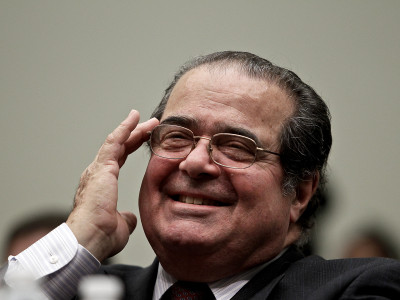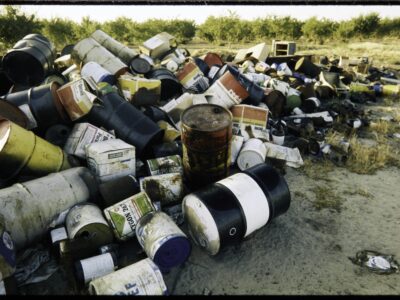The Environmental Gifts of the Magi
Clean air. Clean water. We receive these public goods every day without payment, as gifts from everyone to all of us.
One of the Christmas classics is the Jimmy Stewart movie, It’s a Wonderful Life. Stewart’s character is feeling suicidal, until he learns how much he has unknowingly helped others and how grateful they are. It’s heartwarming if also very corny.
There’s a flip side to that story: the need to remember how much others have contributed to our own lives. That includes people we don’t know who have helped give us a better planet on which to live. Even the most rugged individualist benefits in this way from the dedication and commitment of others. Even our incoming President and Vice President, much as they would have to admit it, benefit every time they breath from the remarkable efforts of others to clean up the air.
I’ve come to think that the holiday season is the perfect time to remind ourselves of those gifts and their importance to our lives. I’ve tried to make this point annually during the holiday season, perhaps in the vain hope that remembering those public gifts will become a tradition of sorts. The post itself has slowly evolved over time as I’ve given the matter more thought.
Most of us don’t often think of the benefits we receive free of charge: the air we breathe, the clean, unpolluted water we depend on, the climate we live in. We get those regardless of whether we pay taxes or how much or how little we consume. We even get them if we’re climate deniers or fans of Ayn Rand.
In short, from the view of any one individual, these are freebies, gifts from nature and society as a whole. If we lived in Bangkok or New Delhi, we’d realize what a gift it is to have breathable air. And for billions around the world, the gift of clean, unpolluted water is but a dream.
The downside of our ability to enjoy these benefits without individually paying for them, as economists have long realized, is that individuals have no incentive to pay the costs of achieving clean air or sustainable fisheries or a livable climate. These are what economists call public goods. They are also subject to the tragedy of the commons: the inevitable temptation to overuse resources that you don’t have to pay for. Of course, while these public goods are free to us, they aren’t free to society as a whole, which is why we need government help to keep our environment clean.
In other words, public goods are free to each of us, but they require all of our combined efforts. When we support these efforts, we reaffirm our membership in a community that begins at home but extends much further in both space and time. Ultimately, that community encompasses people around the world and generations yet to come — just as we have received public goods at the expense of others past and present.
I’m sure all Jimmy Stewart could have made all this sound more compelling. Maybe someday there’ll be a remake, in which an anti-environmentalist gets a chance to live in a world where there are no legal protections for air or water quality, nature, or the climate.
Or perhaps a remake of “A Christmas Story” in which Donald Trump meets the ghost of Climate Past and the spirit of Climate Future.”Climate change, bah humbug,” indeed. Perhaps, as the movie ended, we’d see Trump spending the holiday installing a solar panel on Bob Cratchit’s roof.
In any event, maybe we can all take a moment to think of the public goods that we receive every day. Now is the darkest time of year for those of us in the Northern Hemisphere, and it may feel especially dark this year for environmentalists. But this is something to make the world feel a little brighter.
Happy Holidays!
Reader Comments
4 Replies to “The Environmental Gifts of the Magi”
Comments are closed.







Perhaps another remake of “A Christmas Story” is for UC Powers That Be to meet the ghost of climate Past and the spirit of Climate Future and when the movie ends, with the greatest sense of urgency we’d see UC implementing your recomendation “Where Berkeley falls short, in my view, is that there’s little leadership from the top and little structure at the campus level to organize climate efforts.”
Merry Christmas to you and your family Prof. Farber, and Thank You For Your Efforts to Save the Human Race.
Dan, Happy Holidays to you also,Thank You for reminding us annually, especially with one presidential candidate who wants people who disagree with him to “Rot in Hell” (and he just might win again!!!),and Britain throwing climate change protesters into jail, things truly are going to Hell as a UN leader characterized our continuing failures to control climate change.
One more time: Dan, Thank You for your leadership and efforts to make the right things happen this year. Merry Christmas and Happy New Year to the human race and I Hope and Pray that universities around the world shall unite to make the right things happen in time during 2024.
If our Best institutions cannot make the right things happen in time, then rotting in hell may well happen in 2024 after the climate disasters (especially including totally out of control temperature records) set in 2023!!!
HELP US SURVIVE IN 2024 OR BUST, especially for our newest generations that we are failing to protect.
Dramatic evidence has been published in a number of recent science papers that carbon dioxide levels are already ‘saturated’, meaning little or no further warming is to be expected and rising CO2 levels are all beneficial.
Half of human emissions are being quickly pushed back into the biosphere, the scientists say, causing substantial, famine-busting plant growth, while the rest is entering a ‘saturated’ atmosphere and having a minimal effect on global temperatures. One of the papers accepting the human involvement in rising CO2 is published by the CO2 Coalition, which notes: “We like CO2, so should you.”
https://dailysceptic.org/2024/12/24/science-shock-carbon-dioxide-is-good-for-the-planet-peer-reviewed-studies-suggest/
Jim – I am not able to speak to the validity of this paper, though the argument is intriguing. I wanted to note quickly, though, that regardless of your stance on CO2-related climate forcing, the post from Dr. Farber relates more to the direct impact that polluted water and air have on public health. Reductions in air pollution still provides incredible benefits in the form of reductions in respiratory and circulatory related human disease. You can take climate change entirely out of the equation entirely and still have an incredible case for the reduction of combustion emissions in any country, region, and city.